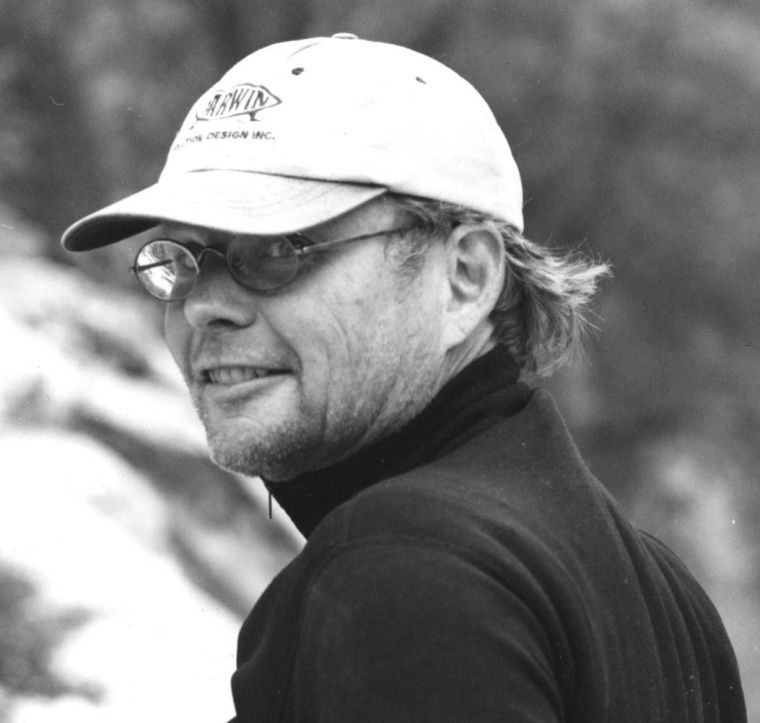Some information may be outdated.
A few years ago in a small-town library in Maine, on a shelf where books no one has checked out for a while were on sale, I found Soul and Body: Essays on the Theories of C.G. Jung, by C.A. Meier. “Wilderness and the Search for the Soul of Modern Man” is one of those essays, which came from a speech Meier gave in 1983 at the Third World Wilderness Conference in Scotland.
These sentences stood out as if highlighted in bright yellow: “The wilderness within would really go ‘wild’ if we should badly damage the outer wilderness. So let us keep the balance as best we can, in order to maintain sanity.”
Much of my life had vibrated between two points: being in wild places, and making a living figuring out how to protect wild places. I’d been aware that while Carl Jung loved the outer world, exploring the inner world gave him the most meaning. I’d coupled Jung’s idea of two worlds—an outer, everyday conscious world, and an unconscious world of dream and shadow—with an idea in Paul Shepard’s classic work, Nature and Madness, about civilization as a veneer, within which dwells the core human we all evolved to be. I theorized that Shepard’s ‘veneer’ and ‘core’ were the same as Jung’s ‘outer’—conscious–and his ‘inner’–unconscious worlds, respectively. Shepard and Jung seemed to be saying the same thing, although from the different disciplines of biology and psychology, blurring any line separating the two.
Along comes Meier magically connecting my ‘inner’ unconscious world, to wilderness. Being a visual person I’d drawn Shepard’s veneer/core concept as a small circle within a larger one—only to realize that it applied to the earth as well as to our personal lives. The outer civilized world of farms, cement and pavement are a veneer covering the wild natural world. Personally, a core, Pleistocene wild human still resides within each of us, lying dormant beneath layer upon layer of L.L. Bean, Disneyworld, I-Phone, Simpsons, Nabisco, Exxon, and modern religion—take your pick.
Wilderness, then, is a place on the earth where the ‘veneer’ is absent, or at least thin enough to move through.
What about my own personal ‘veneer’? Are there points where it is porous or thin enough or absent where I can move through it?
Enter another book — “The Earth Has a Soul: The Nature Writing of Carl Jung”. Meredith Sabini, a Jungian Psychologist from Berkeley, compiled these pieces from Jung’s work and wrote a brilliant essay to go with them. I didn’t realize how important Jung considered his time in the natural, wild world. I inhaled that book and called Sabini to talk about it.
During many conversations, we discussed the connection I imagined between biology and psychology. She believes the ‘core’ or the ‘inner’ world is biological—“evolutionary material” she calls it. It includes both the personal and the collective unconscious. The personal unconscious is where we hide much of what we’re hesitant to let see the light of day (our shadow) but also that which is truly us.
The ‘collective’, she said, consists of the elements of life we share every human who ever lived–“the entire evolutionary history of our species”. She believes that within the collective unconscious can be found all the tools our species has ever used to save itself. This is the same ‘stuff’ Freud called the ‘id’ which he believed should be contained, suppressed if we’re to have an orderly society. Freud’s student, Jung, saw the collective as an amazing source of information, the seedbed of the imagination. The two eventually went their separate ways, largely over this topic.
While modern psychologists, yogis, poets, etc. are getting better at finding access to that unconscious, evolutionary material, Sabini agrees that the wilderness–wild places where we’re exposed to natural systems–is definitely a portal between our inner and outer worlds.
Dr. Sabini told me that I was an example of what she and her colleagues had been noticing recently.
“People as naïve as you are, thinking about these ideas” she said, is indicative of the collective unconscious rising to the surface in unexpected places, “which always happens whenever our species gets into trouble.”
I took that as a compliment.
While I know that destroying the wilderness does make us crazy, I’m also convinced that by spending time in the wilds, we’re more likely to be part of efforts to save our species, than those that threaten us.
Appreciate the coverage? Help keep local news alive.
Chip in to support the Moab Sun News.



